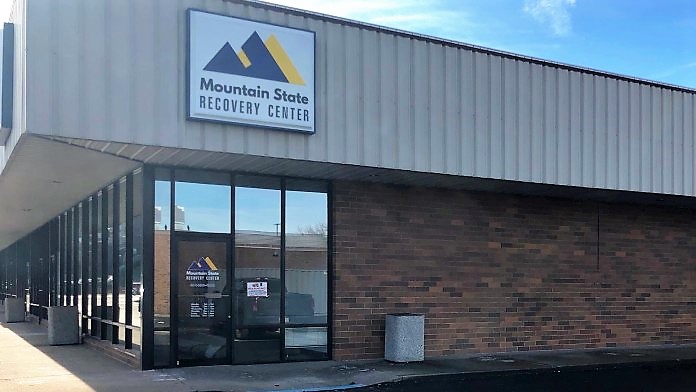Mountain State Recovery Center

About Mountain State Recovery Center
Mountain State Recovery Center located in Charleston, West Virginia provides substance use services. They have a medication assisted treatment (MAT) program, individual therapy, and peer support to ensure that you’re receiving treatment to promote a long term recovery. As addictions look differently for every person, providing you with an individualized plan is an essential practice at the center. Doctors at Mountain State Recovery Center specialize in addiction medicine and want to help you find the best care options.
MAT Program in Charleston, WV
Medication assisted treatment (MAT) here combines behavioral counseling and medication to help with cravings and withdrawal symptoms as you’re going through the detoxification process. Buprenorphine helps to stabilize you during withdrawal so that you’re able to participate in counseling sessions and set goals for a long term recovery. This program also ensures that you can receive treatment while living at home and continuing daily activities such as work, school, and other family and social obligations.
Setting Therapy Goals
At Mountain State Recovery Center, another facet of recovering from addiction is having an individualized treatment plan. This helps you bring your personal experiences and struggles to the table. Treatment plans may include individual therapy, group therapy, or relapse prevention therapy.
The Importance of Advocates
Peer supports here are individuals who have been in your shoes and can provide insights based on their lived experiences. Their goal is to help you achieve a sustainable recovery. Not only do they act as mentors and educators, but they help promote a long term recovery and connect you with further beneficial resources in the community.
| Levels of Care | Detox Service Setting | Programs | Payment Options |
|---|---|---|---|
|
Inpatient and residential programs provide round-the-clock medical and emotional support as you live at the treatment facility. This level of care may be recommended if you have severe addictions or mental health conditions since it removes outside distractions and allows you to focus solely on therapy. |
In outpatient therapy, you’ll attend therapy sessions several times each week while living at home. This is ideal if you have a strong support system and a lower risk of relapse. Outpatient treatment offers flexibility to maintain work, school or family obligations. |
||
|
Inpatient detox occurs in a dedicated treatment facility. You’ll live there around the clock and receive intensive medical support and supervision to help manage your withdrawal symptoms. It is suitable for individuals with moderate to severe addictions as it ensures a stable detox environment. |
Outpatient detox gives you access to medically supervised withdrawal services while still allowing you to live at home. You’ll attend a clinic for treatment and monitoring. This flexible option is suitable for those with mild to moderate withdrawal symptoms who have strong support systems. |
||
|
Alcohol detox programs offer medical support to help individuals withdraw safely from alcohol. Your care team may use medications to ease your symptoms and provide medical monitoring to address complications. |
Drug detox programs support individuals who are withdrawing from addictive substances like cocaine and heroin. Medical support helps you manage symptoms in a controlled and safe environment so you can achieve initial sobriety. |
||
|
Private Insurance
|
Self Pay
|
Levels of Care
Inpatient and residential programs provide round-the-clock medical and emotional support as you live at the treatment facility. This level of care may be recommended if you have severe addictions or mental health conditions since it removes outside distractions and allows you to focus solely on therapy.
In outpatient therapy, you’ll attend therapy sessions several times each week while living at home. This is ideal if you have a strong support system and a lower risk of relapse. Outpatient treatment offers flexibility to maintain work, school or family obligations.
Detox Service Setting
Inpatient detox occurs in a dedicated treatment facility. You’ll live there around the clock and receive intensive medical support and supervision to help manage your withdrawal symptoms. It is suitable for individuals with moderate to severe addictions as it ensures a stable detox environment.
Outpatient detox gives you access to medically supervised withdrawal services while still allowing you to live at home. You’ll attend a clinic for treatment and monitoring. This flexible option is suitable for those with mild to moderate withdrawal symptoms who have strong support systems.
Programs
Alcohol detox programs offer medical support to help individuals withdraw safely from alcohol. Your care team may use medications to ease your symptoms and provide medical monitoring to address complications.
Drug detox programs support individuals who are withdrawing from addictive substances like cocaine and heroin. Medical support helps you manage symptoms in a controlled and safe environment so you can achieve initial sobriety.
Contact
Natalie is a recent Purdue University graduate where she studied Psychology and Creative Writing. She’s a fierce advocate for others and is committed to always showing up with a compassionate heart. She enjoys writing poetry, dancing, and playing piano in her free time.

Courtney Myers writes and edits professionally from her home in North Carolina. She holds an MS in Technical Communication from N.C. State University and has worked in proposal management, marketing, and online content creation. She specializes in creating resources related to behavioral health and addiction recovery.




